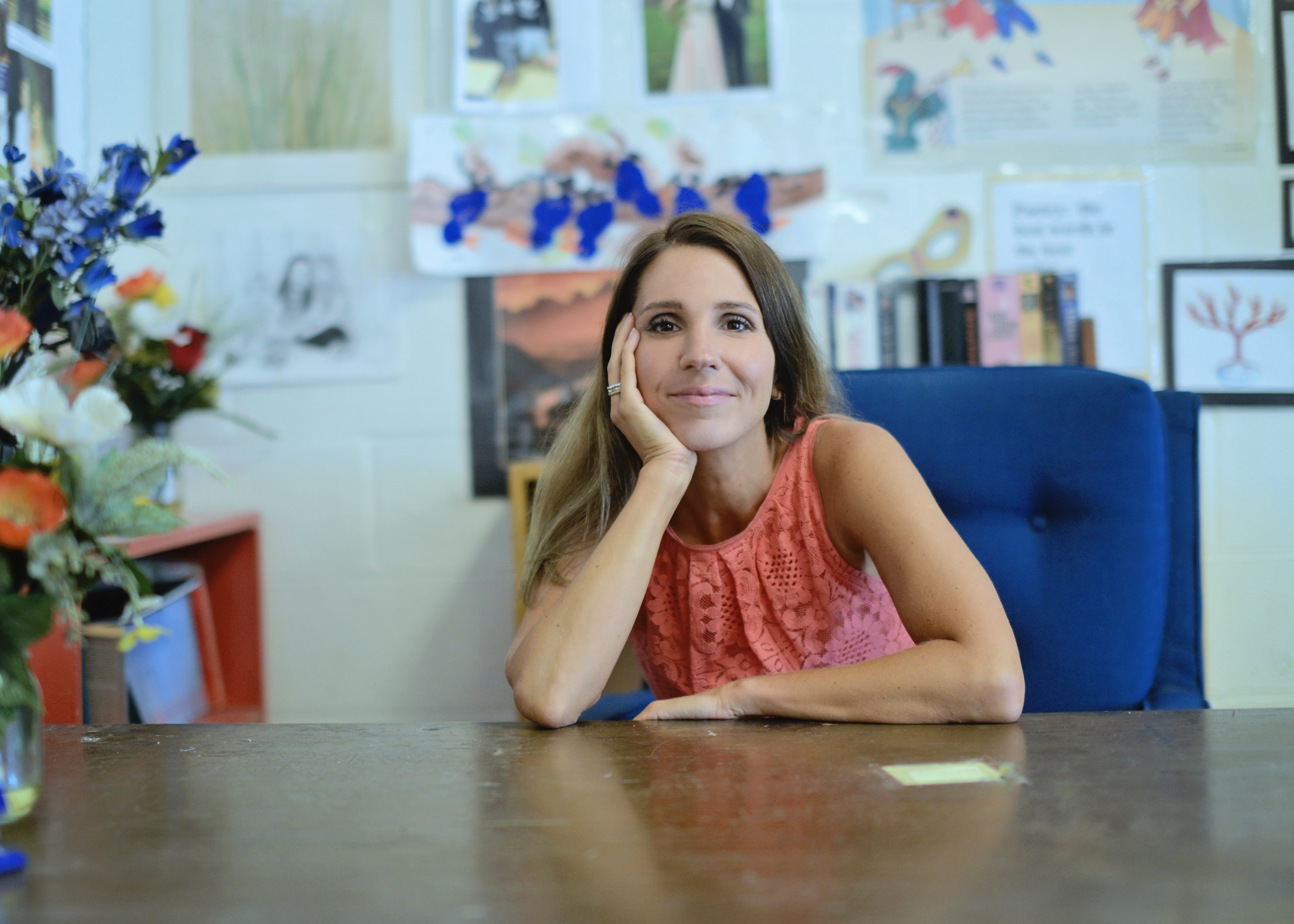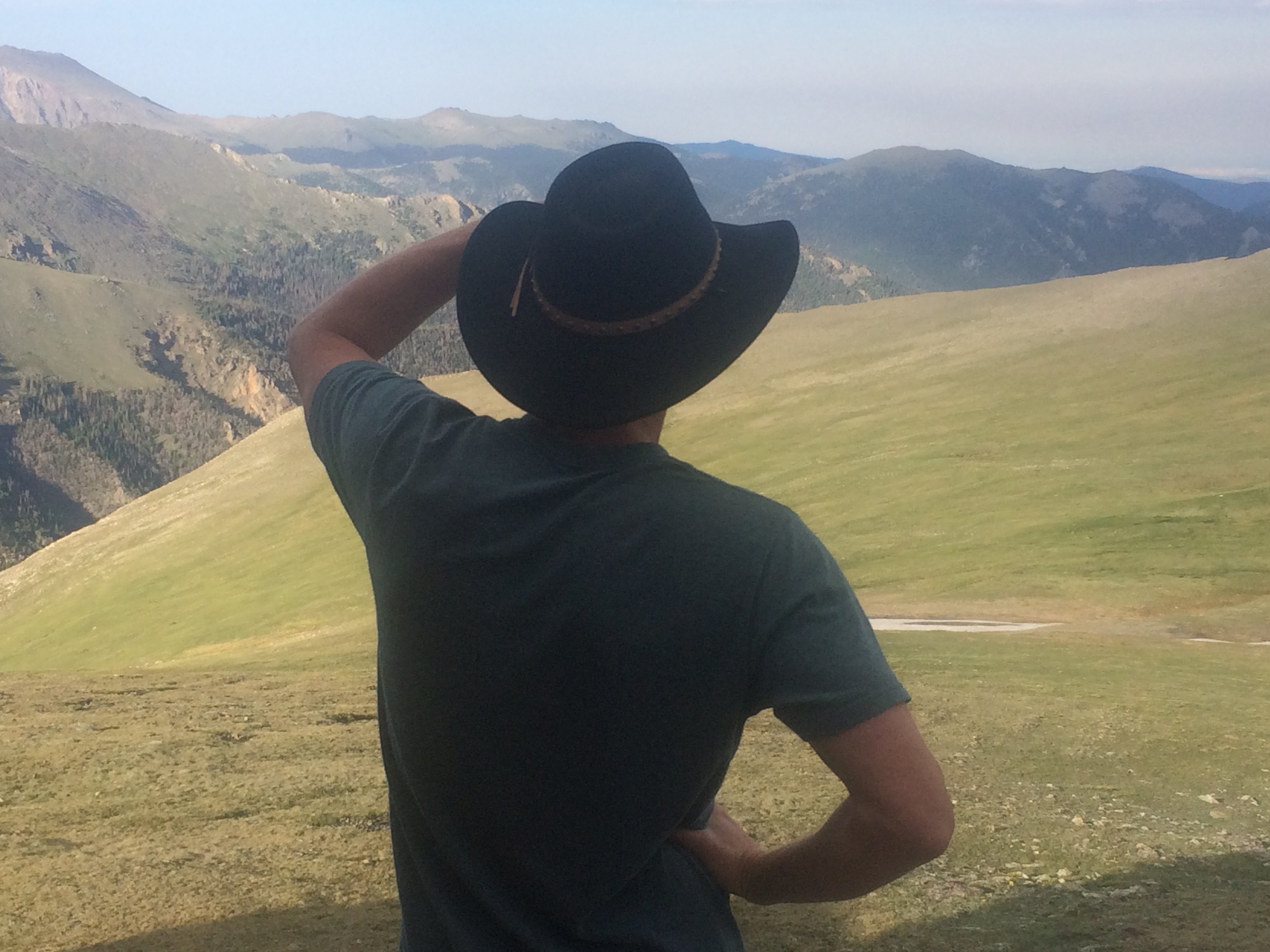Before I asked my husband, Matthew, to marry me (for the third time) I really wasn’t sure he was “the one.” I’m an abstract random kind of gal. He’s a concrete sequential type of guy. I’d never eaten many vegetables. He looked like he ate the right portion of every food group daily and then hit the gym after. My people hailed from rural Maine. His hailed from picturesque New York.
We were almost dead in the water before we ever set sail.
If it weren’t for his uncanny musical ability that reminded me of my father, his love of words and the outdoors (which also reminded me of my father) I’m not sure I would have proposed to him so often.
We met in college, right when people start to find themselves or, at the very least, someone else. I had experimented with a nose ring, bell bottom corduroys and short hair, so even if I didn’t find myself, I’d created a new version surely someone else would like.
Much to my surprise, Matt did like me, a lot.
For every day we spent apart in the summertime, I’d find a new letter in my mailbox, always with some romantic return address like, “From the man who’s over the moon for you.” Wasn’t that sweet?
Of course, I would reciprocate in kind with, “From the woman who’s over two moons for you.” Hallmark should have been taking notes.
As graduation loomed, all of my best friends back home were marrying off, and I felt a pressing need to lock my own future down. Wasn’t this what good Catholic girls did? They met a man, made him wait until the altar, and then speed-walked down the aisle, right?
Neither one of us were sure we were ready for marriage, but we didn’t want to “shack up” or sleep apart.
So, we got married at 22 and kissed the swinging single life we never really had goodbye (really, we were Edward and Bella obsessed with each other from the first cafeteria scene).
Here’s where I tell you why I’m writing this love letter. I didn’t really know how much I truly loved my husband until life threw me some curveballs I never saw coming.
Two years after we married, we had our first child. She was a beautiful, rose petal lipped cherub, and I adored everything about her from the brown curls on her head to the way she slept (if she slept). She was every mother’s dream come true.
Instead of feeling a sense of joy, I felt devastated. Clearly, I wasn’t cut out to be a mother. I couldn’t nurse her right, soothe her right or even get her to sleep.
How had I ever believed I could take care of an infant when I had no experience taking care of anyone, let alone a baby?
As it turns out, I was suffering from postpartum depression. After a week of utter despair Matt said, “I think you’ve got those baby blues I read about. Let’s mention this to your doctor.”
So we did. He held my hand, hugged me while I cried and kept telling me, “It’s going to be okay. I love you. It’s going to be okay. I love you.”
And in the best sort of way, with the help of my doctor and time, he loved me through it.
After we had two more dreams come true, each time the postpartum would hit me, Matt was right there to help me absorb the blow. I knew what was coming, and though it didn’t change much about how utterly inconsolable and inept I felt, it did change how long it lasted.
Matt would say, “We know what this is. We’ve been through it before. We’ll get through it.”
It’s amazing how when someone changes from “I” to “we” what that does for you. We were a team, him and me. Whatever emotions I was feeling, he would take them on with me.
A decade after our last baby was born, life threw us another curveball. My mother changed one of her medications and suffered a relapse of a chronic health condition. After two decades of emotional stability, my practical, witty, selfless, productive, seventy-year-old mother found herself sleepless, claustrophobic, manic and depressed all at the same time.
What were we to do?
Through the better part of three months I moved in with my parents and tried to help my mother and her doctors figure out how we could get her life back.
They were the hardest three months of my life.
Watching someone you love suffer is like standing five feet away from an oncoming train and not being able to shove them out of the way before it mows them over.
Yet again, Matt found a way to pull me back from the tracks while I, literally, kept my own mother from falling.
Some nights I was so exhausted I couldn’t even speak, but I didn’t need to find words for Matt. He held me and said what he’s always said to me, “It’s going to be okay. I love you. It’s going to be okay. I love you.”
And he was right, yet again. After five months of living hell, the doctors found the right medication at the right dosage and Mom returned to good health.
For the last couple of years, Matt and I have enjoyed a relative absence of crises. While there have been bumps here and there, depression hasn’t reared its ugly head in my or my mother’s life. We’ve raised our children, fallen even more in love with them than humanly possible, and taught other people’s kids how to read, write and find themselves.
Up until a few months ago, all seemed right in our world. And then the coronavirus hit.
I, of course, was in denial. They’d find a cure. Those other countries would get it under control. It wouldn’t find it’s way from Wuhan, China to rural Maine. And even if it did, we’d be better prepared.
So when Matt came home with an extra loaf of bread, a crate of eggs, or a package of toilet paper I’d tell him, “We don’t need all this stuff. We’re going to be fine.”
He would look at me with that same patronizing smile I’ve often wanted to wipe off his face and say, “You never know. It doesn’t hurt to be prepared.”
But it did hurt. Because I didn’t want to admit that life as we knew it could change again, could go from good, to bad, to worse, to gone.
We’re on our 14th day of social distancing, working from home and loving our children, and my heart hurts for our world: the doctors and healthcare workers writing up their wills, the elderly going without ventilators, the sick and the dying, the helpless refugees, and the list goes on.
What can be done in the face of so much sadness?
Yet again, my husband has pulled me back from the abyss. Matt reminds me that we can give to the best charities, keep our own children as safe as we can, love our families, love our students and love each other.
When I can’t look at another map or projected death toll, I shut my computer down and look across the room at Matt as he stares at his own screen. Our eyes meet, and I know what he’s saying to me without ever opening his mouth.
“It’s going to be okay. I love you. It’s going to be okay. I love you.”
And I say it right back.


